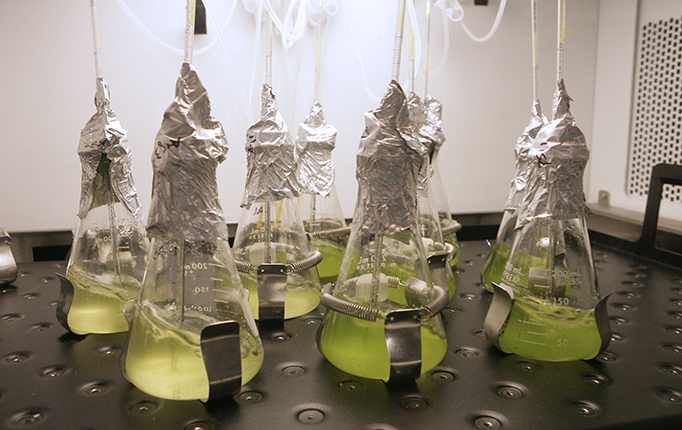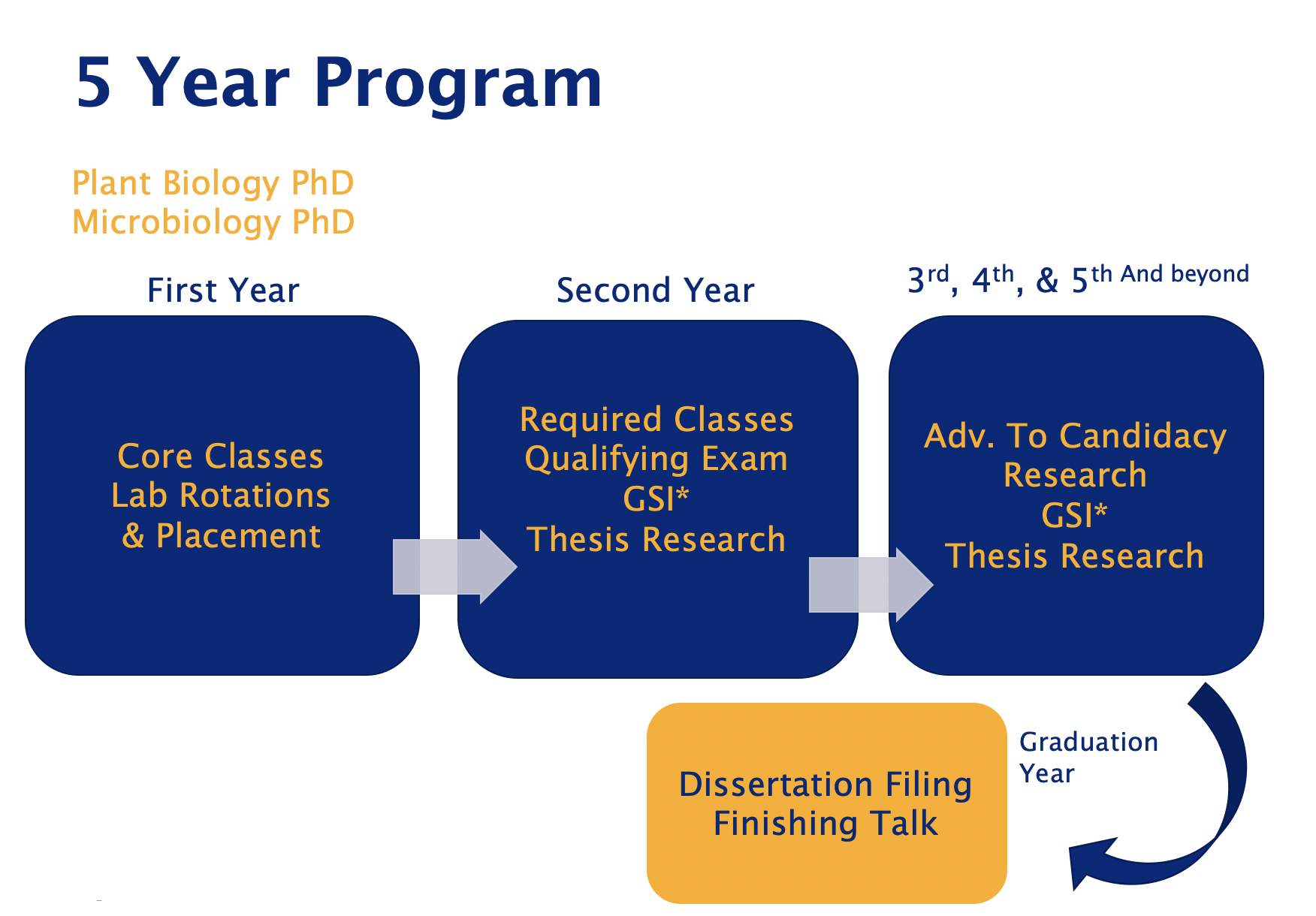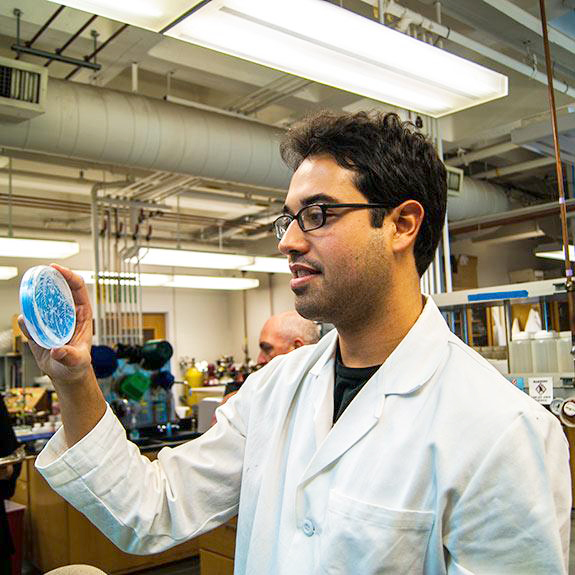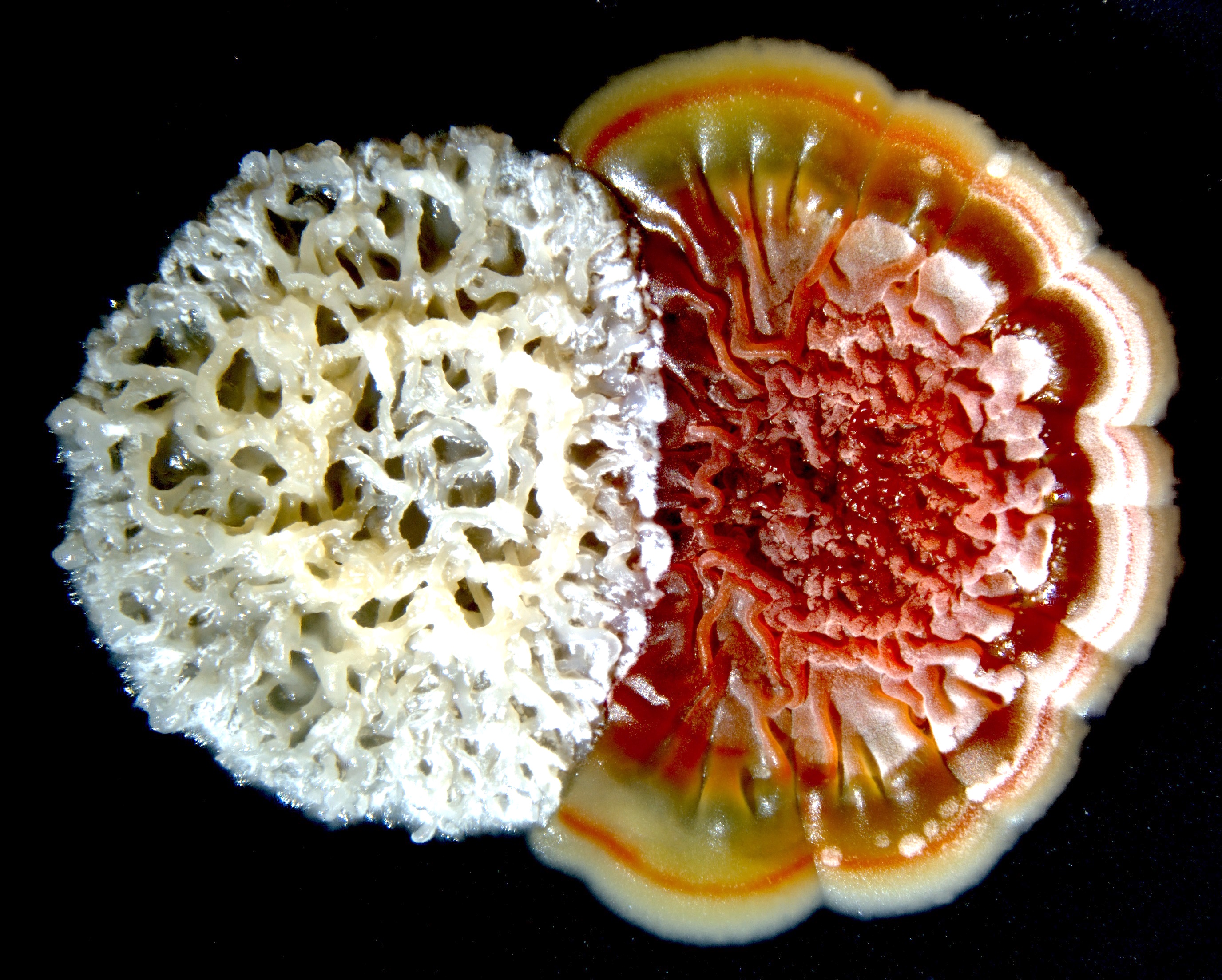
[image caption]
Microbiology
UC Berkeley's graduate program in microbiology provides an outstanding and rigorous course of study and is repeatedly ranked among the best in the world. The program is both immersive and thorough. Students take a variety of classes, teach as graduate student instructors, work with top scientists and perform research in our labs.
Our graduate program consistently ranks best in the world for Microbiology. Our faculty is inclusive and engaging, and each graduate student is fully funded for five years.
Pathway Through the Microbiology Phd Program
Before the beginning of the fall semester, new students discuss their background and interests with the graduate advisors, who help plan academic programs. During the first semester, all new students enroll in a two-credit seminar in which faculty members summarize their current research programs. Each student also rotates through three research laboratories for ten weeks each in the first academic year. The rotations give students the opportunity to explore areas of interest as possibilities for Ph.D. research.

In the first year, students must enroll in the two-semester core course, PMB 220A-F. The core course is comprised of 6 modules, which cover the following topics: microbial genetics, genomics and computational biology, microbial diversity and evolution, cell structure and function, microbial physiology and microbial ecology. The Qualifying Examination tests these fields of knowledge near the end of the student's second year. In addition to the core course, PMB 202 and PMB 210 are required. PMB 202 "Faculty Research Review" exposes students to the research of members of the Graduate Group, via capsule presentations of their ongoing research and its significance to the field of Microbiology. The objectives of PMB 210 “Scientific Reasoning and Logic” are to teach students to critically read and interpret scientific papers.
During the first two years, all students must enroll in two graduate-level seminar courses. Seminars offer students the opportunity for oral presentation of subjects of particular interest. Seminars also let students meet individual faculty and other students in a small-group setting. The Workshop on Teaching, PMB 300, must also be taken the Fall semester of a student’s second year.
Graduate Student Instruction (GSI)
Each student serves as a Graduate Student Instructor (GSI) for approximately 20 hours per week for two semesters. Students participate in the GSI training conference sponsored by the Graduate Division and the Graduate Assembly and enroll in a two-credit teaching workshop. Students are appointed as a GSI for a lower-division course before being a GSI for an upper-division course sponsored by the department. International students educated in schools where English is not the language of instruction are required to pass the Test of Spoken English (TSE) before they serve as teaching assistants.
Lab Rotations
**Beginning Fall 2022, the lab rotation program will be three five-week rotations, completed in the first semester. Students should expect to be placed in their thesis lab by the start of the spring semester of the first year.**
Incoming students must rotate through three different laboratories during the first semester, for five weeks per rotation. The student may select laboratories affiliated with the Graduate Group, or select a lab outside the Group to learn a particular skill. Students explore opportunities for rotations with the relevant faculty and the graduate advisor. The rotations give students an opportunity to explore an area of research in which they may have an interest but no direct experience.
In most cases the rotations will involve laboratory work. However, sometimes a rotation could take the form of reading and discussion. Although some incoming students may have interest in particular faculty for thesis research, students need rotations for exposure to research outside their immediate area of interest. Students have the freedom to investigate different opportunities for a suitable research advisor. Whereas students may express interest in any particular laboratory at any time, they may not establish firm commitments before completing all three rotations. The student generally chooses a Research Advisor after the third rotation. In exceptional cases the student may take a fourth laboratory rotation. After formalizing the choice of a research advisor, the student initiates a research project in the advisor's laboratory.
Qualifying Exam

[image caption]
The Qualifying Examination assesses the candidate's broad knowledge of microbial biology and determines in-depth knowledge in the proposed area of research. The Examination consists of a dialog between the student and the examiners to provide a forum for the student to demonstrate an ability to integrate and extrapolate from information obtained in the classroom and laboratory. The Examination provides a way to evaluate the student's preparation and potential for a research or teaching career at the professorial level. It stresses breadth, depth, and sophistication of knowledge. During the Examination the student will demonstrate:
- Mastery of a significant body of relevant knowledge
- The capacity to think and write critically
- The ability to apply information learned in the classroom and laboratory to the solution of relevant biological problems
The student normally takes the Qualifying Examination normally in the third or fourth semester. The student, in consultation with the Head Graduate Advisor, will recommend a four-member Examination Committee, approved by the Graduate Division. This Committee shall have at least three regular faculty from the Graduate Group and include representatives from least two departments. Adjunct Professors may serve as members of the Committee. Non-Senate members and faculty from other campuses may serve upon approval of the Graduate Advisor and Dean of the Graduate Division.
No later than one week before the Examination the candidate will prepare and deliver to the Committee two research proposals, both of the scope and caliber appropriate for doctoral dissertation research. The student develops the topics of both the major and minor proposals in consultation with the Examination Committee Chair. To focus questioning in the candidate's proposed research area, the major proposal, in about three pages, should address the specific topic proposed for thesis research. To provide a starting point for questioning across the breadth of microbial biology, the minor proposal, in about two pages, should address a specific topic in a field that differs significantly in approach from that of the candidate's proposed dissertation research. The proposals serve as the basis for the oral examination, do not limit it.
The student, in consultation with the Research Advisor and Graduate Advisors, should ensure that Examination Committee composition's permits it to assess knowledge in both areas covered by the proposals. Any examiner may ask questions in any subject area. Thus, we strongly recommend that the student meet with each Committee member before the Examination. The professor and student may choose to focus on topics within a particular subject area and may meet regularly to discuss these topics. As long as the Committee adequately assesses the student's broad knowledge of microbial biology, the Committee may discuss additional areas by mutual agreement between the student and the examiners.
The oral examination will last approximately 3 hours. Approximately one-third of the Examination covers the major proposal, with the remaining time allocated to the minor proposal and the breadth of microbiology. Passing the Qualifying Examination requires a unanimous vote of the Committee.
Following the Examination, the Committee Chair will write a short statement about the performance of the student in each area. This summary, added to the student's file, documents that the Committee spent adequate time on Examination areas and also guides the student's future program.
Graduate Review

[image caption]
Evaluation of first year student progress occurs at the end of the first year. The faculty meet as a group to review first year student grades and core-course comments from instructors, laboratory rotation evaluations from faculty members, and any student comments the student wishes to present. The faculty discuss each student individually and his/her progress over the course of the year which results in the student receiving a review letter which becomes part of the student’s file. The review letter summarizes the student’s progress and may include specific recommendations or coursework requirements from the faculty. Reviews consider:
- Mastery of a significant body of relevant knowledge
- The capacity to think and write critically
- The ability to apply information learned in the classroom and laboratory to the solution of relevant biological problems
Dissertation
The student invites a three-member committee to serve as the Dissertation Committee. (The student may request a four-member committee, or the Graduate Division may require one in certain circumstances). The student identifies the Committee members in consultation with the Head Graduate Advisor. The Committee must include representatives of at least two academic departments. The Chair of the Committee will be the Research Advisor, who must have faculty membership in the Graduate Group. However, an adjunct faculty member can serve as Co-Chair with a regular faculty Co-Chair. The committee must have at least one Academic Senate member.
At least once per year this Committee will meet with the student and evaluate progress. The Graduate Division requires that a form be sent to the Graduate Division certifying progress made by the student. The Dissertation Committee members will also advise the student about carrying out research.
All members of the Committee must approve and sign the dissertation before the Ph.D. degree gets conferred.
For the Ph.D. degree, students must complete a dissertation based on original and independent research.
A final examination is not required. However, all students must present a finishing seminar to summarize the results of their dissertation project, and must respond to questions from the audience. If the faculty do not find the seminar satisfactory, they may ask the student to present the seminar again to address the concerns.
Most students take five years to complete the Ph.D. program: two years before the Qualifying Examination, and three years afterwards.

